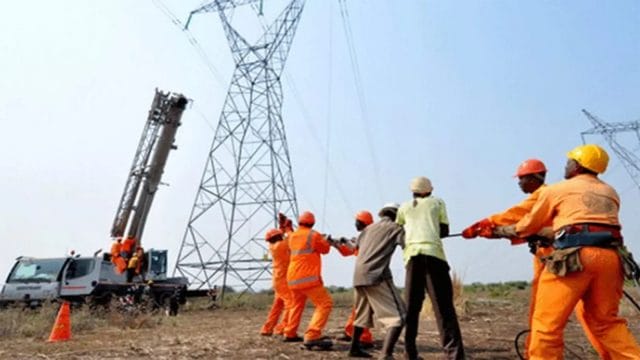Opinion: Unity of purpose, unity in deed called for in Africa

By Janet Karim
I in them and You in Me, that they may be perfected completed into one, so that the world may know [without any doubt] that You sent Me, and [that You] have loved them, just as You have loved Me. — John.17.23
If there is one thing among all the other natural endowments that Africa has plenty of, it is undoubtedly the sun. lots and lots and lots of sun, and sometimes even too much sun. it was therefore very heartwarming to hear that Malawi President Dr. Lazarus Chakwera in Egypt as Chair of the Least Developed Countries (LDC) for the climate change world conference, presided over the signing of solar energy provision with the Global Energy Alliance for People and Planet, a Norwegian company. This is a big leap in using natural resources without bringing harm to the environment. Discussions that were held between Malawi, Tanzania, Kenya, Tanzania, Zambia, South Africa, Mozambique, and others pledged to work together to make advances in the provision of electricity in the region.
Such unity is to be admired and works well, especially for the continent of Africa, which has been the ground for either ideological contests that have seen numerous areas torn by wars or the plunder of human and natural resources. In many instances divisions have prevailed.

Such a stereotypical snapshot of Africa was far from the stage in Maputo when the African region of the ACP/EU Post-Cotonou negotiations was held. From start to finish, the African delegates were having none of the items being tabled and attempted to thrust them down the throats of the African delegations.
“We have made great tractions, a trigger has been made, and our concerns raised, ” Honorable Ashems Longwe Malawi’s leader of the delegation said.
Among the many contentious items were the Rules of Procedure, which he said the delegations agreed they would not adopt. He pointed out that there were other items that they would not agree on.
The delegations requested the postponement of the signing of the ACP-EU Agreement until all EU and African, Caribbean, and Pacific (ACP) countries feel equally respected in this agreement; thereby ensuring that this agreement will not violate national sovereignty on health and education issues – including Sexual and Reproductive Health and Rights (SRHR) and Comprehensive Sexuality Education (CSE).
There was much time spent on the various elements that have been threaded into the Agreement that delegations from Uganda joined by Malawi and others in resisting placing items that the EU placed in the human rights. As the debates heated up, the delegation of Uganda affirmed that his country will never localize controversial issues of gay rights. Many countries weighed in and questioned the push for comprehensive and sexuality education.
As the EU Council President until June 2022, France pushes for the 20-year ACP-EU Agreement a.k.a. Samoa Agreement / Post-Cotonou Agreement to be signed in the first quarter of 2022; without considering the fact that several countries in the EU and in Africa are still questioning the implications of this agreement on their national sovereignty on social development and human rights issues.
For AU Ambassadors:
ü Inform your Foreign Minister, Head of State, and your delegates in Brussels about the concerning provisions inside the ACP-EU Agreement and ask them to table the attached critical questions to the EU Commission. READ THE CONFERENCE DOCUMENTS.
For AU Heads of State, Foreign Ministers, and African delegates in Brussels:
ü Ensure the concerning provisions inside the ACP – EU Agreement become an agenda point during the AU Executive Council Meeting, AU Heads of State Summit.
ü Table the attached “FWI policy brief questions for clarification” to the EU Commission and during the AU-EU Summit on 17-18 Feb, mainly focusing on these 4 core issues:
1) Request the European Commission to provide written assurances that no provisions in this binding Agreement will be interpreted to promote abortion, Comprehensive Sexuality Education (CSE), or LGBT rights, which have not achieved consensus at the UN.
2) Clarify with the European Commission whether the Agreement trumps national laws.
3) Clarify with the European Commission whether or not this Agreement will make developmental or trade agreements between EU Members and OACPS States conditional upon adherence of these States to provisions on “sexual and reproductive health and rights (SRHR)”
Clarify whether there is any mechanism whereby African states can make reservations or declarations exempting their countries from controversial provisions or provisions that conflict with their national laws.
As Africa joins the rest of the world in paving the way for living a carbon emission, the rest of the world must live up to its promise to empower Africa to rise up and join the campaign to make the world a better place. Africa unite!




